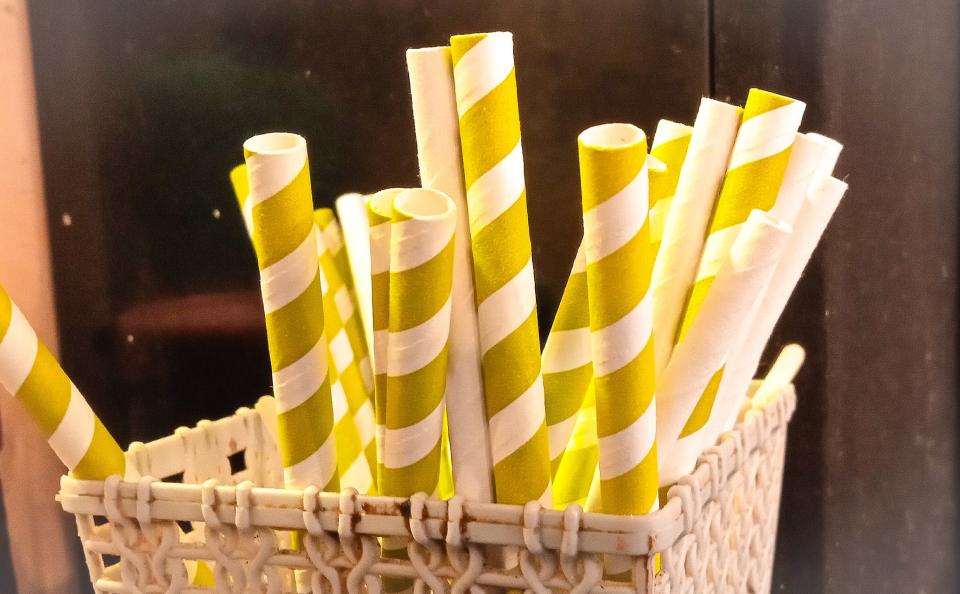15 Easy And Convenient Ways I'm Living A More Eco-Friendly Life That You Can Try, Too
Hi! My name is Titilua Ikenasio, and I'm a 26-year-old living in Australia. As a Samoan woman, climate change and living sustainably are so important to me because the Pacific Islands are at the forefront of the climate crisis. Although I’m currently not living there, I try and support the fight against climate change in any way I can.

Here are a few ways I try to live a little more sustainably and reduce my impact on the Earth that you can try, too:
It's important to note that these are just things I do personally, and you can take whichever ideas are easily adaptable to your lives!
1.I try to use more eco-friendly products so the waste is not toxic to the environment.

There are so many eco-friendly options out there that can replace regular products with toxins that may be harmful to the environment. For example, regular products such as shampoo, dishwashing liquid, and laundry detergents enter our environment when they are washed down our drains. By using eco-friendly versions of these products, I'm reducing the amount of chemicals released into the water systems.
2.When shopping, I opt for reusable items rather than single-use products.

A lot of household items have reusable options that can replace single-use products. For example, using tea towels can replace paper towels. In the US, an estimated 13 billion pounds of paper towels are used each year, which means that more than 3,000 tons are used daily! Using tea towels or reusable cloths could save so much waste, especially since paper towels can’t be recycled.
3.I'm mindful about eating meat.

The agriculture industry is devastating to the Earth for a number of reasons but especially when it comes to the consumption of meat. According to Sentient Media, 36 million cattle are slaughtered each year for meat in the US alone. Cattle produce the greenhouse gas called methane; the more cattle farms we have, the more cattle-produced methane. The factories and water usage needed to run this industry are huge, and there are additional problems with pollution, turning forests into pastures, and overgrazing. I won’t say everyone should become a vegetarian, but being mindful of how much meat we eat is a start!
4.My family grows our own vegetables.

As mentioned above, agriculture is a huge contributor to climate change, partly because of the land clearing it takes to grow crops and the unrealistic food standards that see many crops go to waste. Not to mention the factories, machinery, and toxic sprays that are used throughout the process. Through growing your own vegetables, you get an organic product that is much healthier for you, and you also decrease the demand for those vegetables and fruit, which in turn, reduces the harm we inflict on our environment. Of course, not everyone has a backyard, but there are tons of great options nowadays for folks to grow veggies on apartment balconies or even in your windowsill.
5.I try to buy less.

Fox / Via media.giphy.com
We currently consume more resources than necessary, and it goes without saying that this is not a sustainable way to live. All the resources we use for our current lifestyles — from food to clothing to transport — are not infinite. At the rate we're using them, we're not giving the Earth enough time to replenish the materials. It may seem insignificant, but buying less and being more mindful of what you do buy can make a big difference. When shopping, I usually ask myself whether I really need the item. It could save the planet and your money in the long run!
6.I'm aware of my energy consumption.

Electricity plants are a major contributor to carbon emissions due to the burning of fossil fuels. While most of us know by now not to leave the house with the lights on, did you know that leaving appliances plugged in while you're not using them still uses energy? It's called standby power, and according to the US Department of Energy, it accounts for up to 10% of residential energy use. Plus, it can cost you an extra $100/year! This includes things like charging your devices — if they're done charging, go ahead and unplug your charger. Using a smart power strip may also work as it can detect when devices are in standby mode and can cut the power for you. This can save you money on your electricity bill while also reducing carbon emissions.
7.I use food scraps as compost.

If you have a garden or indoor plants, you can save your vegetable scraps to use as compost. In my house, we usually have a bowl on the kitchen counter to easily throw any scraps into, and at the end of the day, we put them in the garden. Your plants and garden will thank you for it, and you’ll stop more waste from going to the landfill.
8.I joined online share communities like Facebook Marketplace.

Online share communities have become very popular over the past few years, especially with the rise in the cost of living. They can include buy-and-sell pages or Facebook communities that consist of locals who post anything they don’t need for cheap or even free. I've heard of people asking for sugar or a few lemons and receiving them for free from people who weren’t using them. Of course, you can apply the same principle to your family and friends — asking never hurt anybody! This way, you can use products that could have gone to waste and get a cheaper price, all while doing your part for the environment.
9.If I don't need to drive, I don't!

Netflix / / Via media.giphy.com
This might have a few people groaning, but transportation accounted for the largest portion of total US greenhouse gas emissions last year. I’m not saying you should stop driving altogether, but being conscious about car usage or seeking alternative options on specific days could be a start. You could take a walk or ride a bike to your destination if possible, and this could also get your steps in for the day. If you can’t avoid transportation, taking public transport (if available in your area) could also help as it reduces the number of vehicles running at one time as well as things like traffic.
10.We upcycle whenever possible!

Growing up in a big family, we were huge on upcycling to save money. However, upcycling can also be a great way to live more sustainably. This could be anything from turning old socks into hand mitts or using wood from old furniture to build something else. In my house, my dad used old wire laying around and wood from an old bed to build this chicken coop! And my bed is also made from an old wooden palette that was laying around. Anything that reduces waste is a step toward saving the planet.
11.My family doesn't buy single-use, plastic water bottles.

According to the Pacific Institute, the water bottling process releases over 2.5 million tons of carbon dioxide into the atmosphere annually. In the US alone, 86% of disposable water bottles used in the United States go in the trash. My family has invested in good water bottles we take everywhere. If one of us forgets it at home and we need to buy a single-use water bottle, we make sure to use it more than once and then recycle it properly.
12.I try to buy high-quality items whenever possible because they last longer.

Starz / / Via media.giphy.com
This one can be a bit hard for many people because high-quality options are usually more expensive; however, I'm a big believer that they'll be worth it in the long run. High-quality options are often more durable and made with sustainable materials which means you won't need to replace them as often as cheaper, low-quality products. Also, you can often score some great quality items for cheap at thrift shops or Facebook Marketplace!
13.I reuse my plastic bags when shopping.

My family has always been huge on reusing plastic bags — we even have a dedicated cupboard to store them in. Getting into the habit of leaving some bags in your car so you can easily use them for your next shop is a pro tip. They're also just handy to have around the house for literally anything: a makeshift library book bag, a bag to carry items between destinations, something to put your wet clothes into after a swim — the possible uses are endless and environmentally friendly! Less waste means a happier planet!
14.I try to use paper straws or metal straws where possible.

Plastic straws may seem small, but they have had a huge impact on the environment, especially our oceans. Plastic straws can take 200 years to break down. And if they make their way into the oceans, they can break down into micro pieces called microplastics, which are then ingested by sea creatures. I always ask for paper straws where possible, and if there aren't any, I usually make do without one. I was also gifted metal straws by some friends, and they're great! I can carry them around, and they're super easy to wash.
15.And finally, I joined a local group that advocates against corporate and government contributions to climate change.

Although I've listed some great ways to live more sustainably, individual action cannot fight climate change alone, and it's important we hold larger corporations and governments accountable. Joining local groups that hold important petitions and rallies can make a huge difference. Personally, I joined the Pacific Climate Warriors when I lived in the city and participated in many activities and events they held. If you are a bit shy, you can always try reaching out to a group via social media or email to ask if there is anything you can do to help. Saving our Earth is everyone's responsibility, and we should all lend a helping hand where we can!

